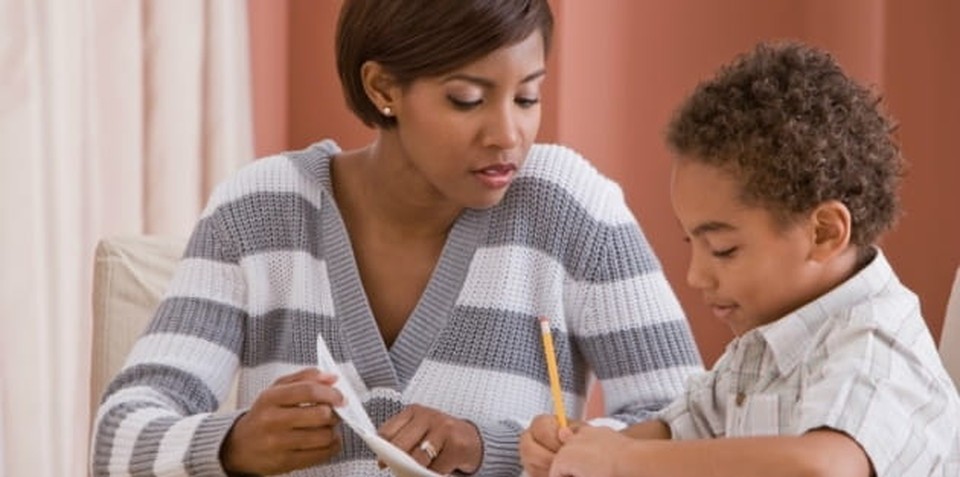Should Happiness Matter to Parents?

When I was pregnant with my first child, I asked my mother if she had been happy as a parent. This godly woman who had raised six children and fostered more than 40 over a nearly 50-year span shrugged, saying “What does happiness have to do with it?”
I’ve thought about her matter-of-fact response to a question that most of my peers struggle with when raising children. Whether fixing meals, cleaning up messes or dealing with teenager angst, it never occurred to my mother—and women of her generation—to think about happiness the way we do today.
Our personal happiness as parents has become much more central to our overall enjoyment of life. “Today, people are more interested than in previous generations in what will make them happy as individuals,” says Andrew Hess, content manager for community outreach with Focus on the Family.
But what do we mean by happiness? The very definition of what it means to be happy has undergone its own metamorphous. “Happiness has become more selfish in that people are looking for happiness as individuals and apart from God,” says David Murray, an author, pastor and professor living in Grand Rapids, Mich. “Happiness also has become tied to short-term materialistic things.”
Something funny happened along the way as the ideal of happiness altered from the plural sense to the singular sense. “When we think about virtues like love and kindness, a lot of times those things are about making somebody happy, about giving to someone else,” says Hess. “As a culture, happiness is shifting to how I feel right now and how my life is going right now.”
Parental Happiness
The focus on the in-this-moment happiness has caused parents to lose the long-term view moms and dads of older generations instinctively kept in mind when handling the minutia of child rearing. Today as parents, we worry over the fact that we’re not really happy changing endless diapers, soothing fussy children and wondering if we’ll ever have peace and quiet in our homes again.
The question shouldn’t be how do we attain happiness today but how do we raise our kids to give them a chance of living long, happy lives? Here are some ways parents can put happiness into its proper prospective in relation to child rearing and the family.
Communicate joy. This doesn’t mean plastering a fake, happy smile on your face no matter what, but find the true joy that comes from “seeing God in the tiniest things and the smallest experiences,” says Murray. “It’s vital for Christian parents to make it a priority to build a happy home by communicating to their children where their joy comes from.”
Consistently discipline. On the surface, this seems like a non sequitur, but research has shown that the happier the kids, the more self-discipline or self-control they have. “Parents who teach their children discipline give these kids a better chance of being happy in all aspects of their lives, from academics to relationships,” says Hess.
Guard innocence. As believers, we know that the heart is deceitfully wicked above all things (Jeremiah 17:9), but that doesn’t mean we don’t take care to protect our children. Again, research strongly suggests that the longer our kids retain their innocence, the happier they are. “It’s a good thing for parents to protect children appropriately from things they might not yet be ready to understand,” says Hess.
Embrace sadness. To be truly happy, you need to fully comprehend what it means to be sad. I had a parent tell me once that she didn’t ever want her child to be sad. This well-meaning mother had the wrong idea of happiness in that sadness is necessary for joy to be experienced. “We need to help our children accept sadness and to see it as an unavoidable time of life that can also be good, that deepens character, that prepares us for greater suffering and that makes us a help to others,” says Murray.
Eschew materialism. Sometimes, we fall into the trap of equating happiness with things, whether it’s a bigger house, a fancier car, expensive electronic toys or exotic vacations. Our own attitudes towards happiness spills over to our kids. “If parents try to give happiness by the same means they are trying to get happiness, which is often through things, that can have a terrible, negative effect ultimately on the children, parents and family,” says Murray.
Curtail media. Whether it’s your own consumption of social media or your child’s, make sure you have a healthy dose of real conversation and real life experiences each day. From Facebook to Instagram, we can spend too much time comparing our lives to others—and coming up short. “Misery is rooted in bad media choices,” says Murray. “What many teenagers are hauling into their minds is making them miserable.”
Focus on group happiness. Stop worrying about whether or not our children are happy as individuals and instead think more about the happiness of the family as a unit. “Encourage kids to think more about a life of serving others rather than ‘What can I do to make me happy?’” says Murray.
Ride the highs, and lows, of parenting. Researchers have found that parents have a greater number of higher highs and lower lows when it comes to their children—and that’s normal, given how we feel about our kids. “Children are great sources of happiness and joy, but when that child does something that might hurt us or bring us pain, it’s a deeper hurt or deeper pain,” says Hess. “Our hearts are tied to our kids and we want to see our kids do well, so as a parent, you’ll experience greater joy but also greater pain.”
Seek gratitude. Don’t fill your home with negativity and don’t talk too much about the not-so-great things that happen in everyone’s life at one time or another. Focus on finding the joy in everyday life and see the goodness in all of life. “It’s about being content in this phase,” says Hess. “People who take regular time to be thankful for God for the good things in their lives have a clearer vision of all they have to be grateful for.”
Our calling as parents doesn’t mean we have to feel happy all the time. Emotions like happiness ebb and flow throughout our lives. We would do well to remember that ourselves and to teach our children that happiness isn’t only a joyful feeling—it’s also a deliberate choice. We can choose to view our circumstances in a positive, rather than negative, light. This doesn’t make us Pollyannas, but gives us a better foundation on which to handle life’s ups and downs.
Choose this day to be happy in your parenting, despite the not-so-great times and the downright dreadful ones. You’ll find much joy amid the sorrow, much pleasure amid the pain, and much happiness amid the contentment.
Sarah Hamaker is a certified Leadership Parenting Coach™ through the Rosemond Leadership Parenting Coach Institute. She’s also a freelance writer and editor, and her book, Ending Sibling Rivalry: Moving Your Kids From War to Peace, is scheduled for release from Beacon Hill Press of Kansas City in the fall of 2014. Sarah happily lives in Fairfax, Va., with her husband and four children. Visit her at www.parentcoachnova.com.
Originally published April 11, 2014.





